Video by Hannah Tran
About 1,500 members of the Colorado State University and Fort Collins community gathered to remember and recommit to the dream of Dr. Martin Luther King, Jr. on Jan. 17 at the annual MLK Day march and celebration.
They also heard from keynote speaker Carlotta Walls LaNier, the youngest member of the “Little Rock Nine,” whom Arkansas Gov. Orval Faubus prevented from enrolling in racially segregated Little Rock Central High School in 1957 until an intervention by President Dwight Eisenhower.
After opening remarks by Claudia Menéndez, chief diversity, equity and inclusion officer for the City of Fort Collins, marchers took a route to the CSU campus that led them past homes where some of the community’s first African Americans lived. The march ended at the Lory Student Center ballrooms, where about 600 people attended LaNier’s speech and spoken-word performances, songs and dance. Leaders from CSU, the City of Fort Collins, the Poudre School District and Front Range Community College offered welcome remarks.
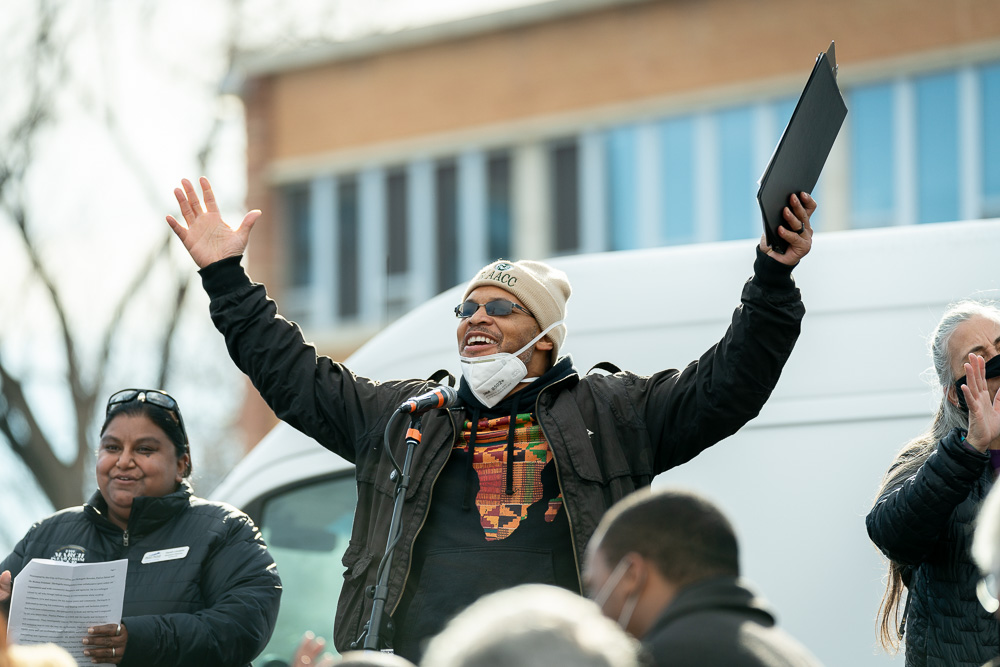
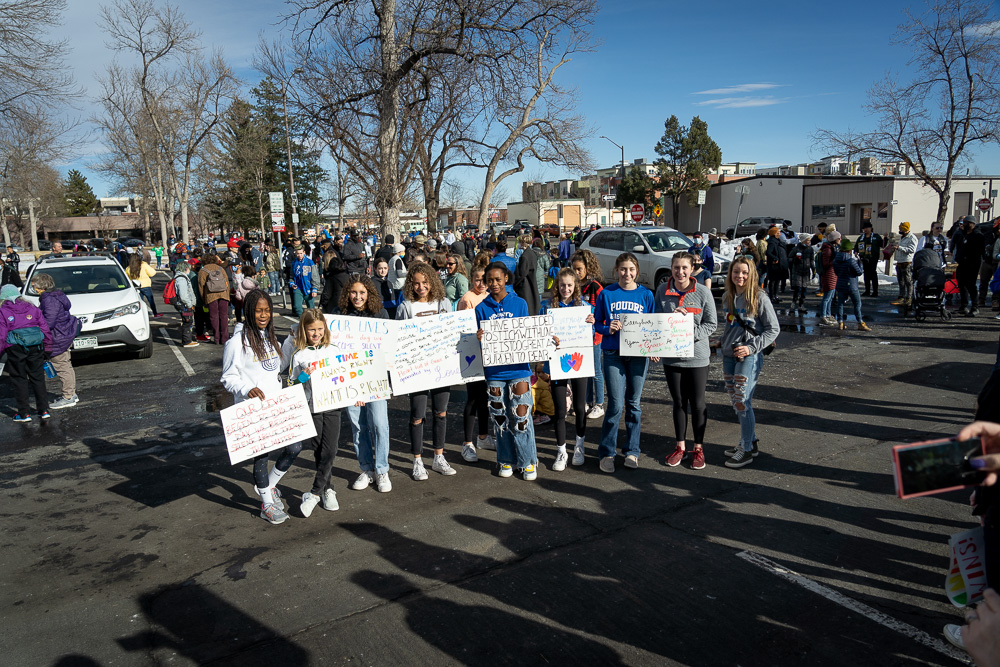
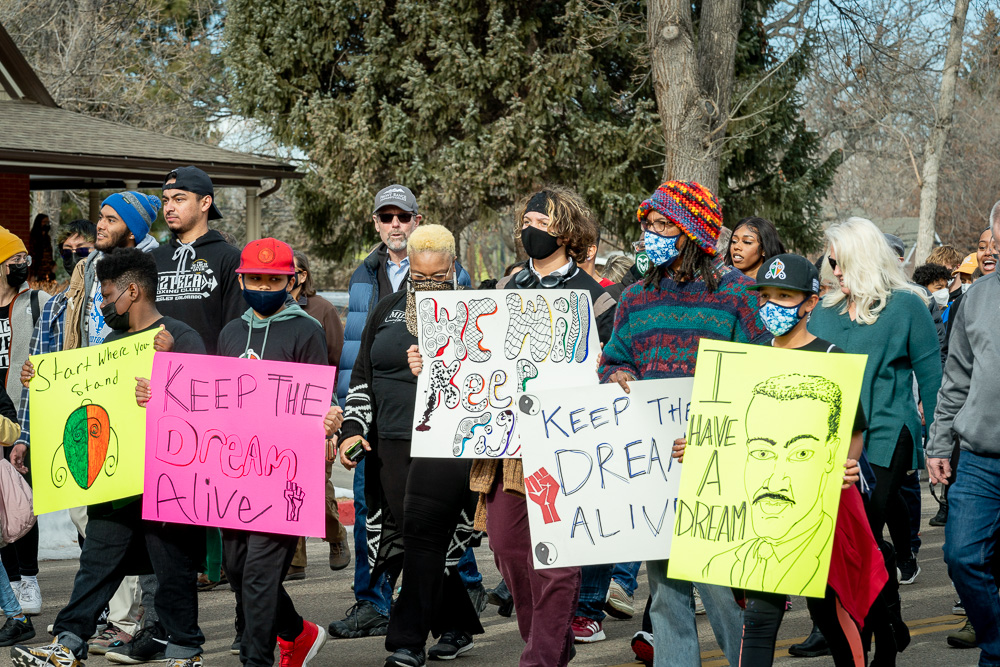
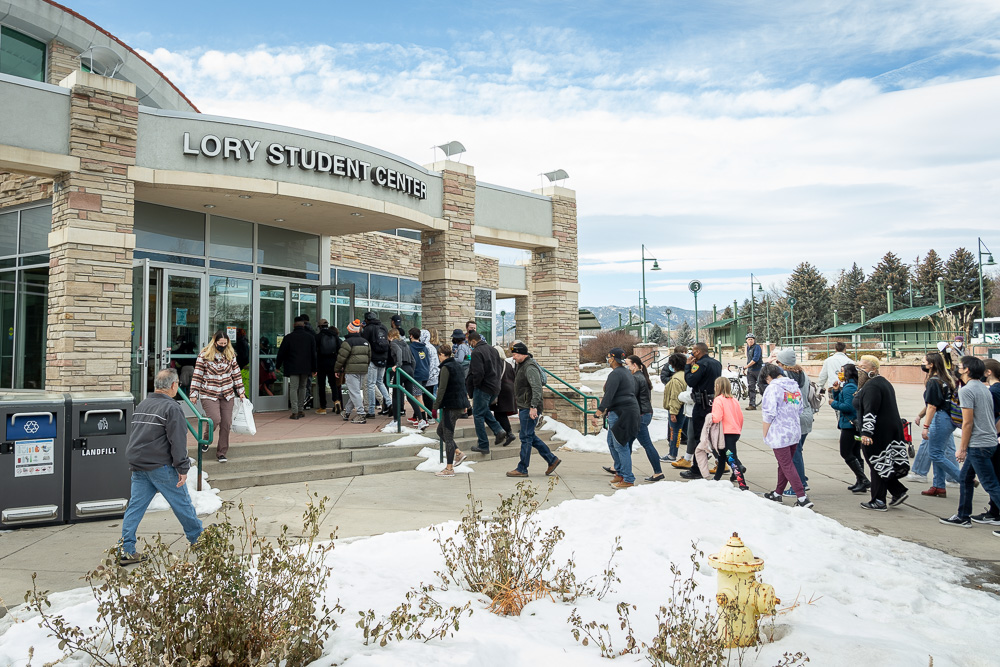
Photos by Joe Mendoza/CSU Photography
‘Sacrificed his life’
LaNier spoke about King’s legacy before recounting the time that she met him.
“Today we recognize a man who is remembered for his commitment to civil rights, human rights, voting rights, fair wages, access to health care and the dignity of work,” she said. “He answered the call to serve humanity, and he sacrificed his life for our democracy. Because he did so, and because so many other dedicated servants before and after him also answered the call, we’re able to live in this land of the free.”
When the Little Rock Nine were invited to meet with King, he was only 28 and had not yet become famous for his civil rights work. LaNier described him as “just a man” who was “sitting around a card table eating barbecue and drinking beer.”
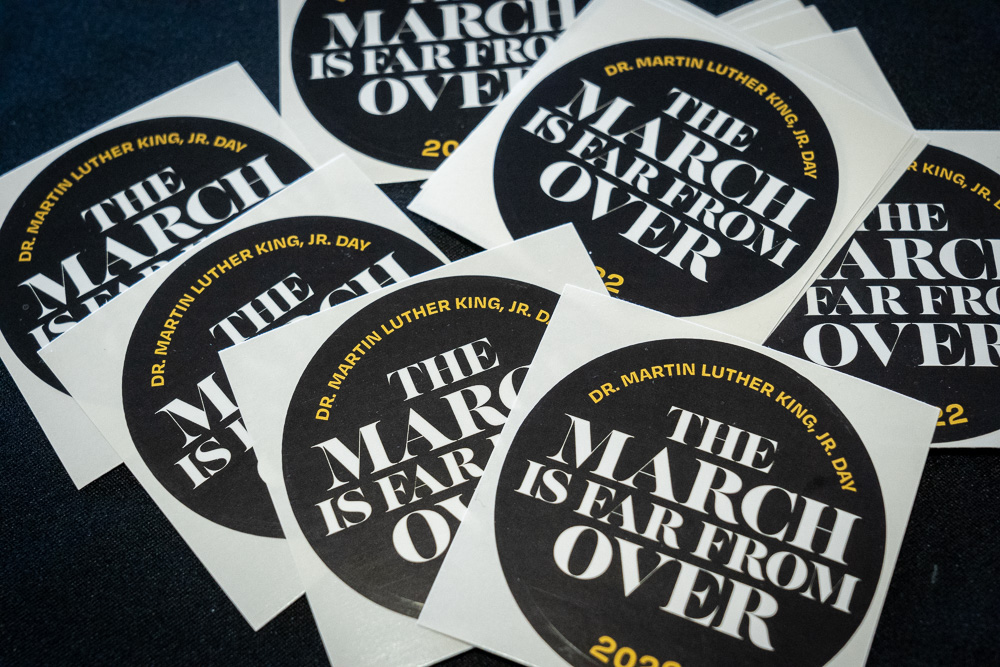
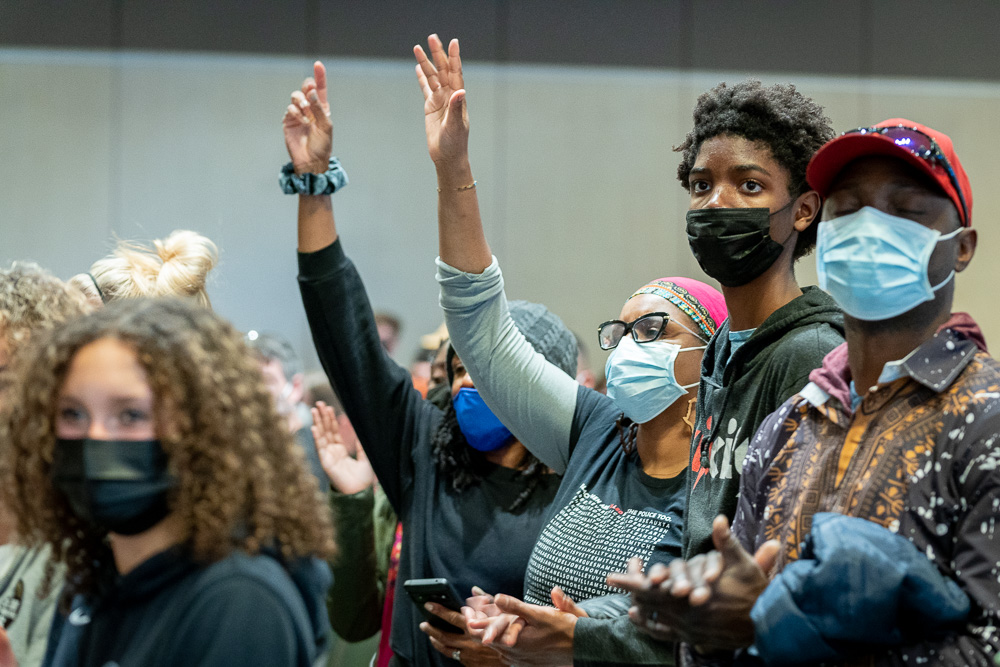
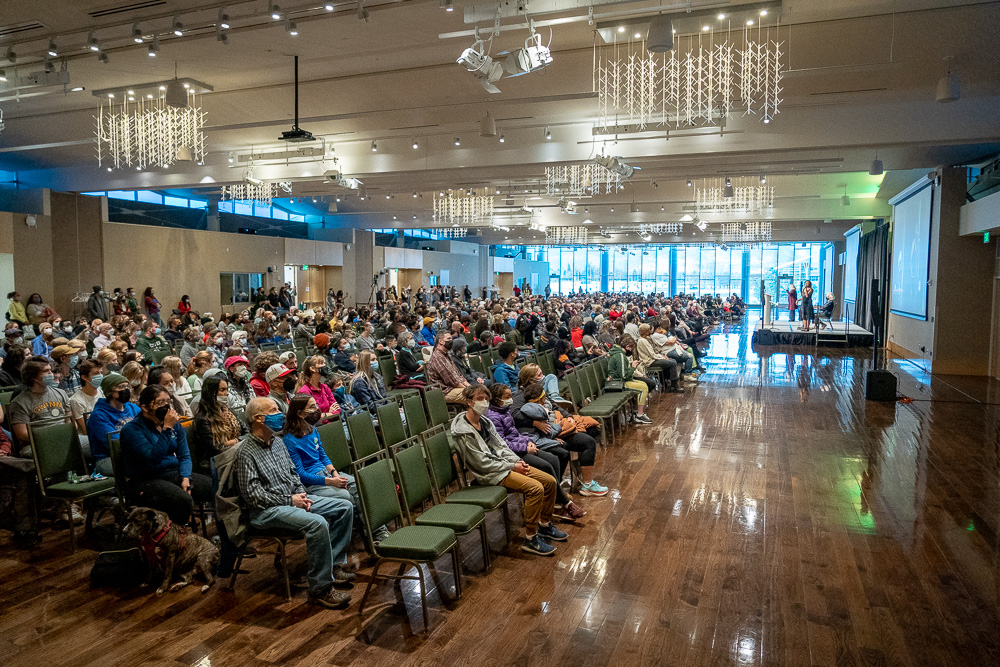
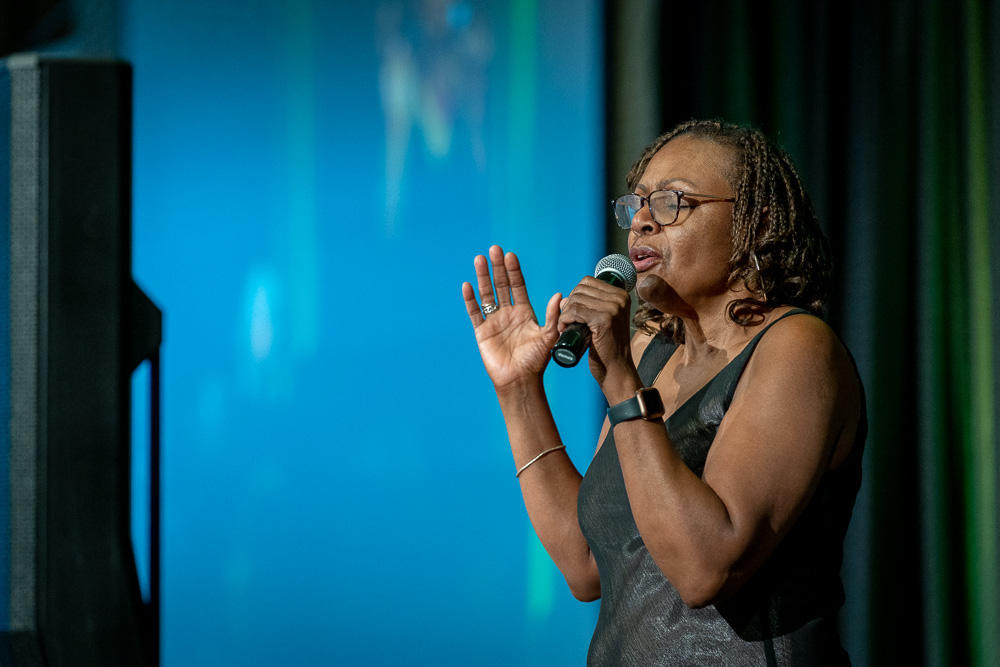
Important reminder
She said that while some people don’t like it when she describes him that way, it’s an important memory because it reminds us that “he was like us: a son, a father, a husband, a sibling, a friend, a human being with faults and weaknesses, and a man who knew how to enjoy a good piece of barbecue.”
LaNier explained it’s a reminder that we all, like King, have gifts and talents that can be used to create change.
“Dr. King was not superhuman, he was just a man who put his gifts to work for the good of mankind,” she said, adding that if King were alive today, he’d remind us that “we all have gifts to share and a role to play in creating the kind of society we desire. He would remind us to examine ourselves and ask what we are doing to make a difference.”